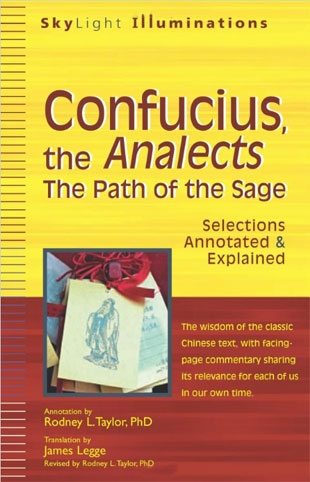"The Master said, 'If a person be without the virtues proper to goodness, what has he to do with the rites of propriety? If a person be without the virtues proper to goodness, what has he to do with music?' "
— Analects III:3
"1. The term for goodness is jen. Legge's translation renders the term 'virtues proper to humanity.' Legge seeks to demonstrate the universal nature of jen as the essential virtue of Confucian thought.
"2. Confucius places propriety, li, in juxtaposition to jen, goodness. Some will argue that ritual is first and foremost a performative act whose efficacy is a direct product of the accuracy of performance. We know of course that anyone can perform a ritual, but Confucius argues that only the person of goodness may perform the ritual with true meaning and understanding.
"3. Confucius brings together the spheres of music and ritual, arguing that both require goodness of character if they are to be meaningful. Music and ritual are complementary and serve a larger goal of a reverential attitude.
"In a number of cultures and religious traditions, standards of aesthetic judgment are rooted in moral values, and Confucians have always sought to find moral virtue in a wide range of human activities. Confucius is suggesting the importance of seeing ritual and music as two ways in which ultimate meaning can be brought into the individual's life precisely because each can reflect that deepest character of humankind and the ways of Heaven. Are we so different when we seek to find ultimate meaning in aesthetic expression?"
